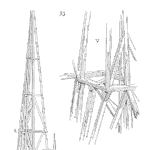
How to Balance Features and Reliability
Abstract
Kirk and Fred discussing decisions made regarding the costs, features and reliability when make a purchase of home appliances and other consumer products.
ᐅ Play Episode
Your Reliability Engineering Professional Development Site
Author of Accelerated Reliability articles and Next Generation HALT and HASS, plus, co-host on Speaking of Reliability.
This author's archive lists contributions of articles and episodes.

Kirk and Fred discussing decisions made regarding the costs, features and reliability when make a purchase of home appliances and other consumer products.
ᐅ Play Episode

Kirk and Fred discussing good, better and best ways to introduce and motivate a company to use weakness discovery test methodology.
ᐅ Play Episode

Kirk and Fred discussing how his career path led to being a reliability engineer and meeting a working with Gregg Hobbs. Ph.D. the reliability leader that gave him a new perspective on HALT and HASS.
ᐅ Play Episode

Kirk and Fred discussing his purchase of a new car and the manufacturers environmental condition as declared in the owners manual.
ᐅ Play Episode

Kirk and Fred discussing ways to find intermittent system failures.
ᐅ Play Episode

Kirk and Fred discussing a real case of product failure for a OEM sub-supplier and determining how to isolate the cause
ᐅ Play Episode

Kirk and Fred discussing the value of getting field failures returned for failure analysis and best practices in determining the causes.
ᐅ Play Episode

Kirk and Fred discussing the relationship between quality and reliability. Quality can lead to a functional failure but sometimes is cosmetic or feel of a product.
ᐅ Play Episode

Kirk and Fred discussing the difficulty of keeping the failure data and details of past failures of products in order to make more reliable products.
ᐅ Play Episode

Kirk and Fred discussing the problem of getting failure data from predecessor products for many companies. Without detailed useful and verified failure data, it is difficult to improve reliability
ᐅ Play Episode

Kirk and Fred discussing the relation of costs versus how much reliability is needed for the design and production of electronics systems
ᐅ Play Episode

Kirk and Fred discussing the issue of quantifying the amount of life there is in solid state electronics with no moving parts.
ᐅ Play Episode

Kirk and Fred discussing the issue of long term reliability, intrinsic wear-out, and the rapid improvement of new features and benefits that motivate retirement of older devices such as in smartphones.
ᐅ Play Episode

Kirk and Fred discussing the long, ever-impending death of the outdated reliability prediction handbook and its progeny.
ᐅ Play Episode

Kirk and Fred discussing the notion that being curious about failures is a key element of being a reliability engineer.
ᐅ Play Episode
 Ask a question or send along a comment.
Please login to view and use the contact form.
Ask a question or send along a comment.
Please login to view and use the contact form.